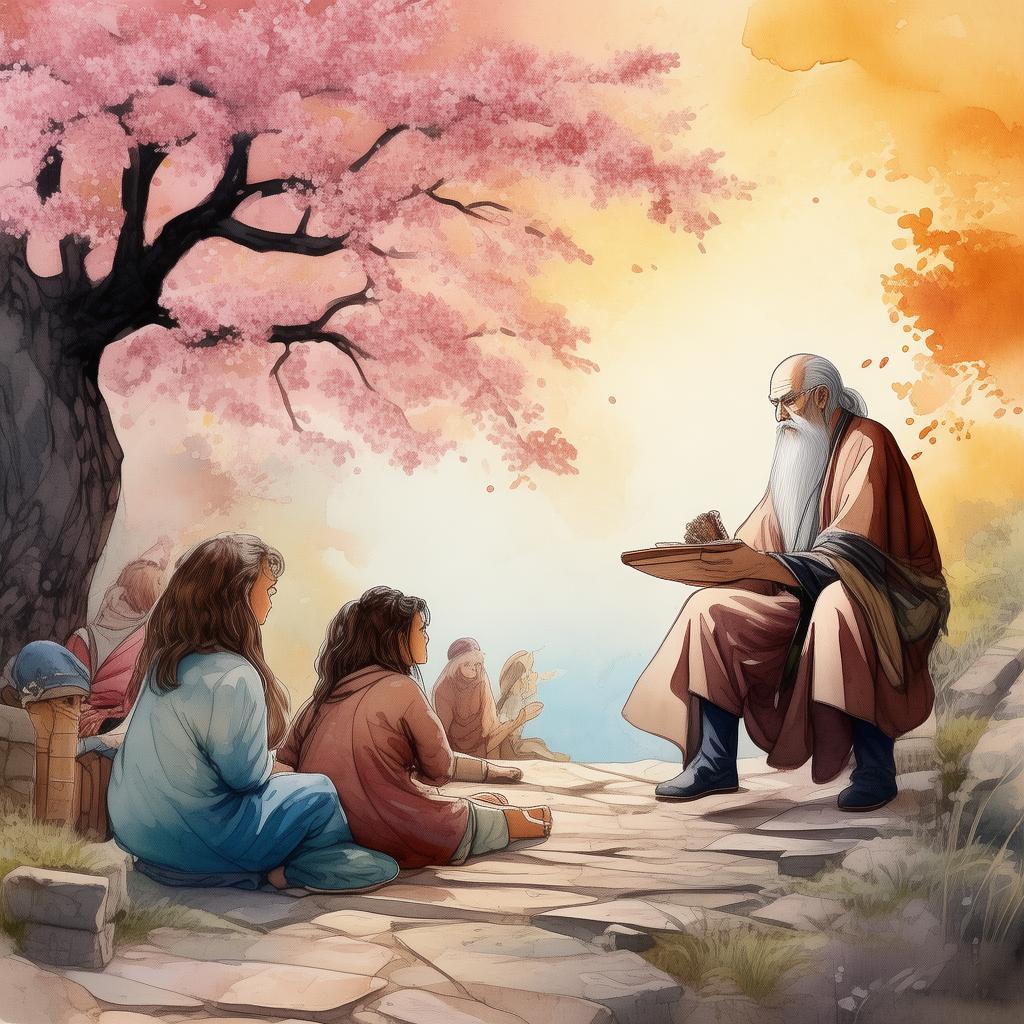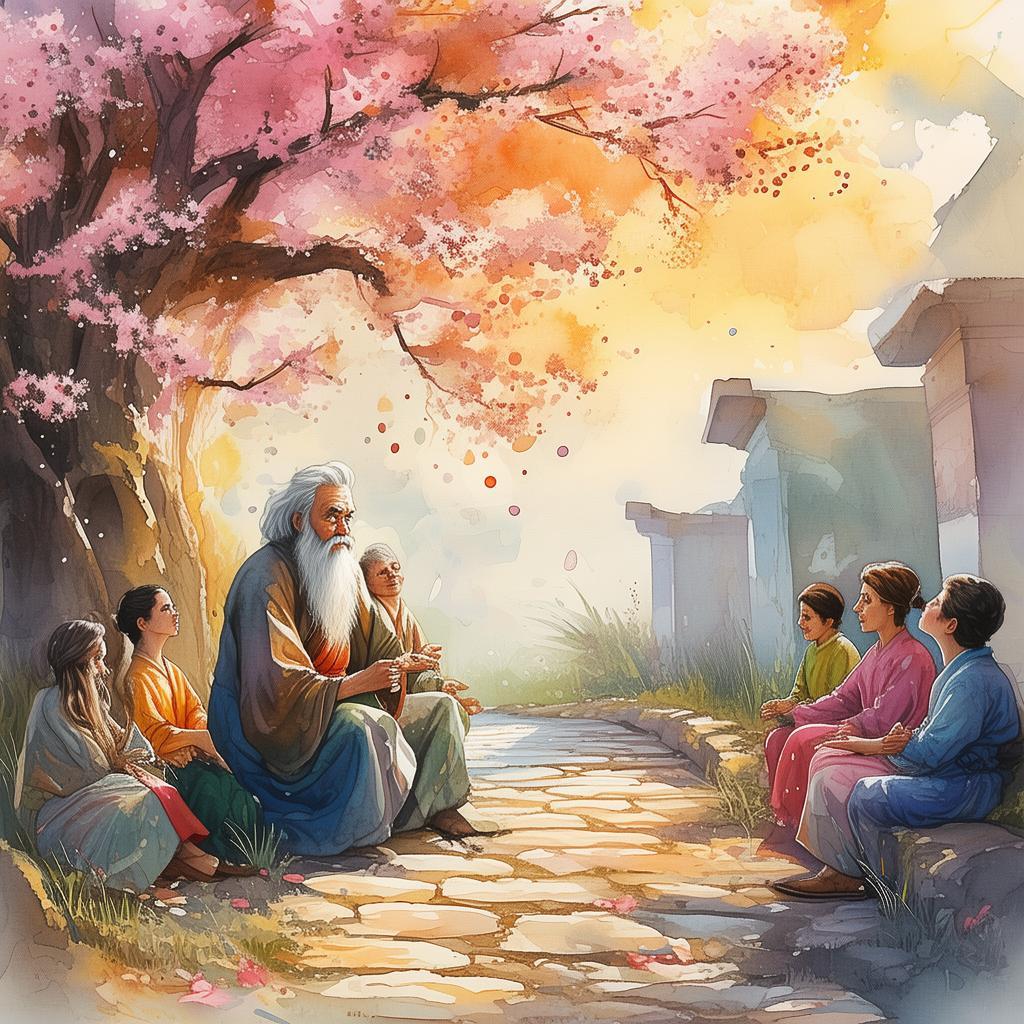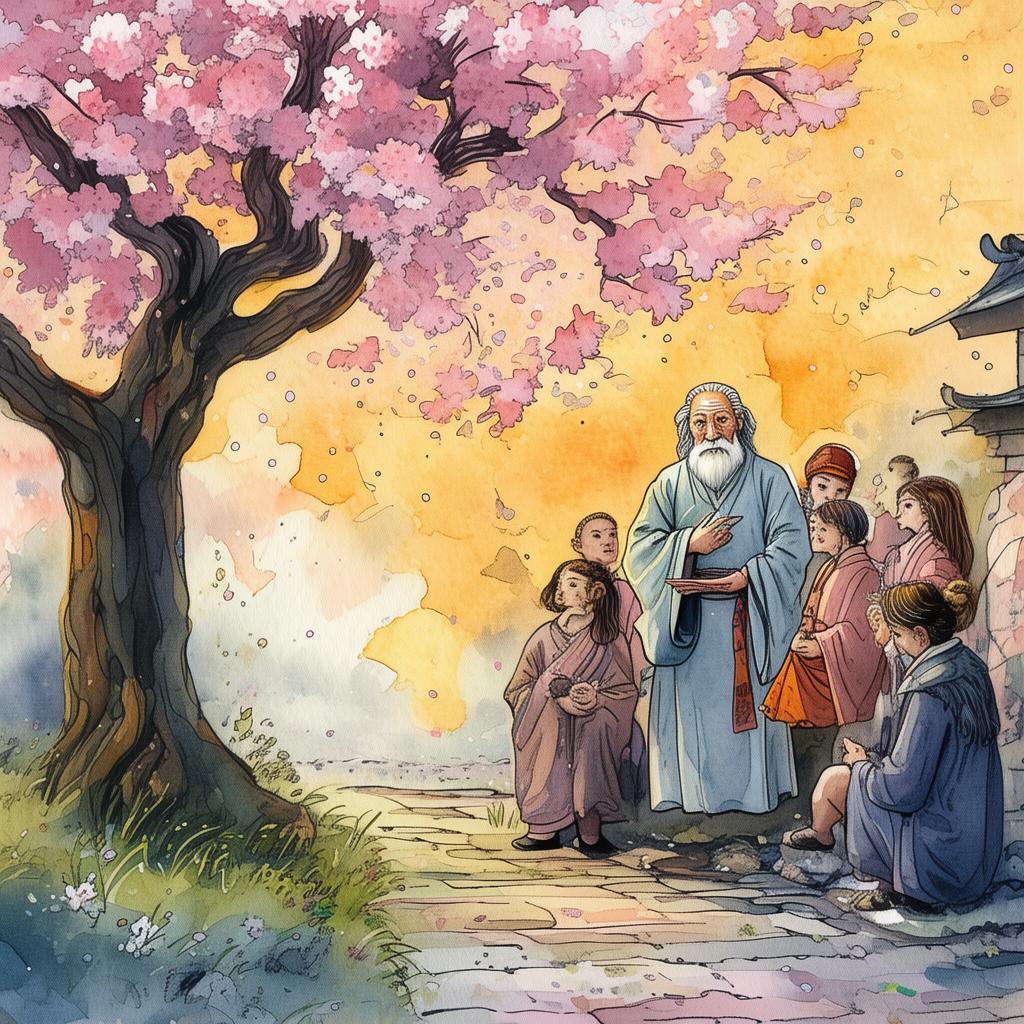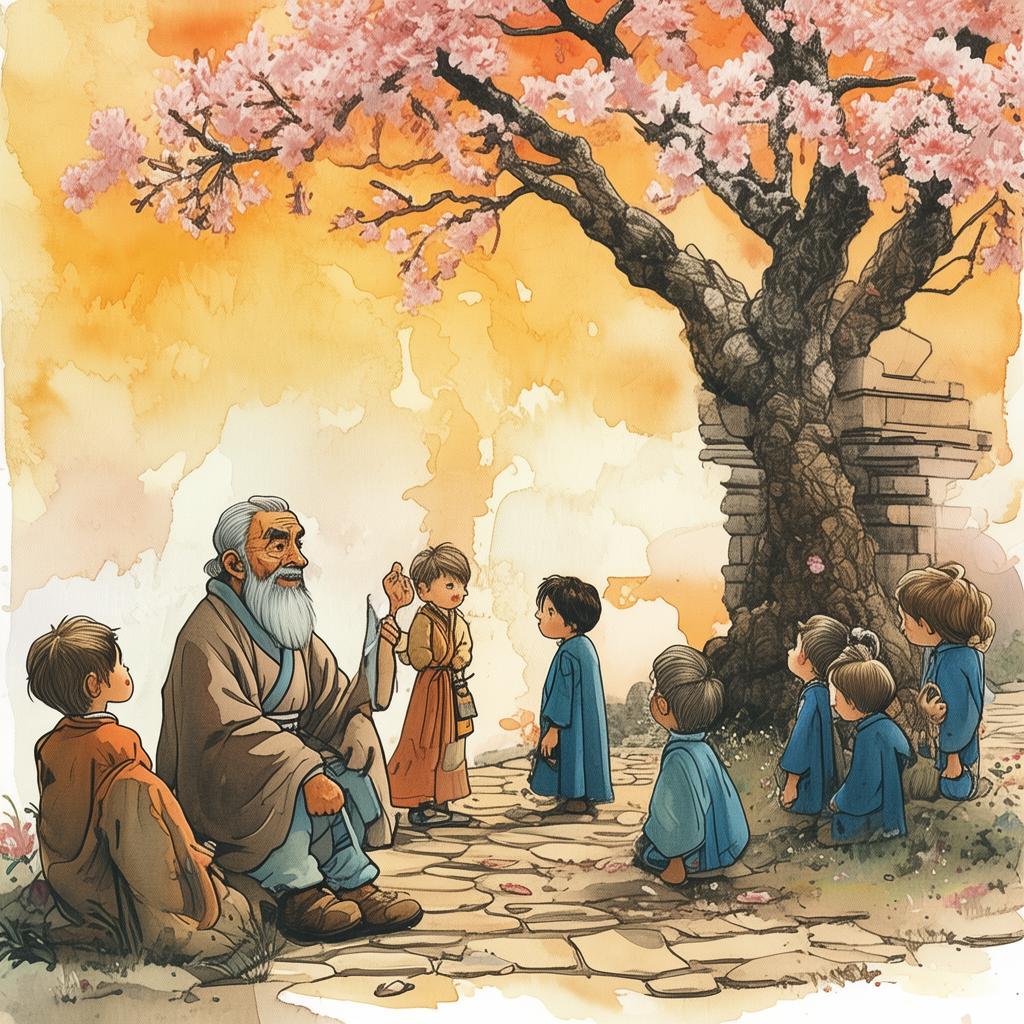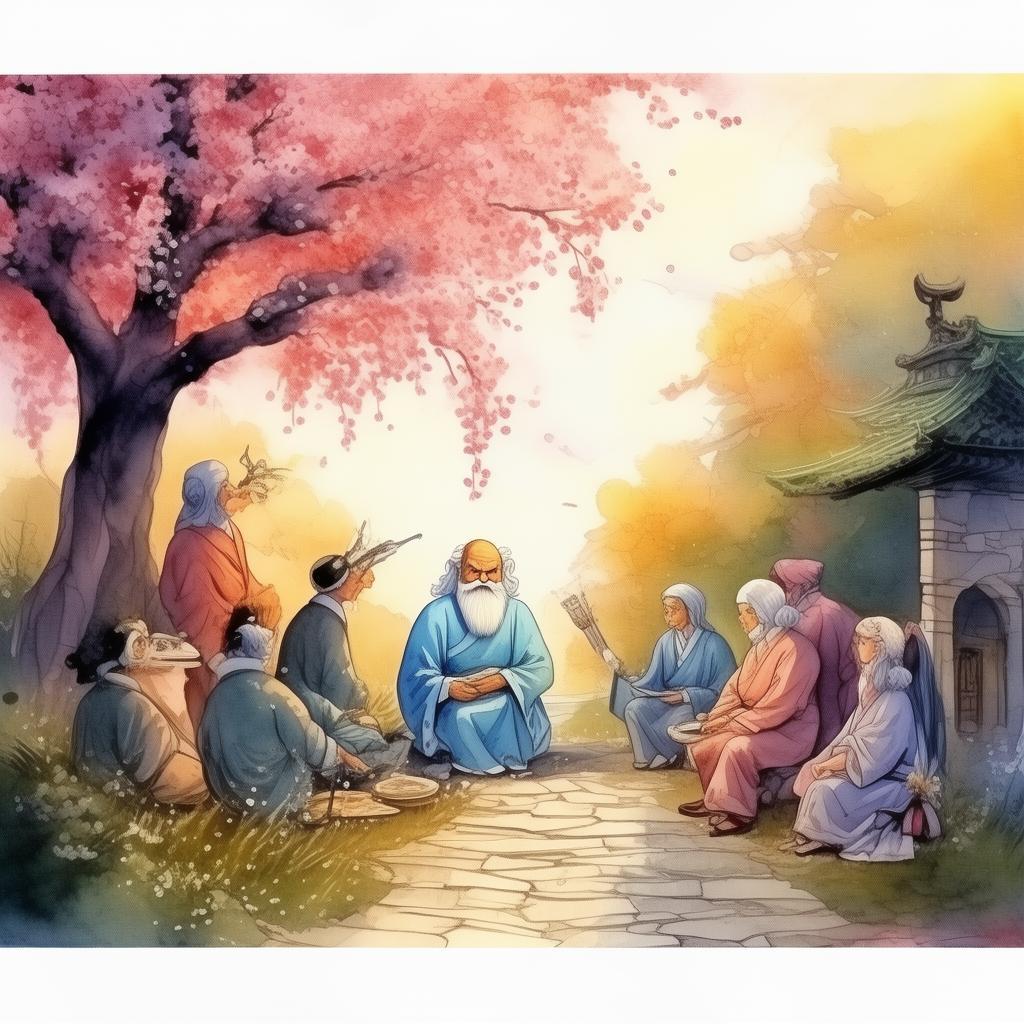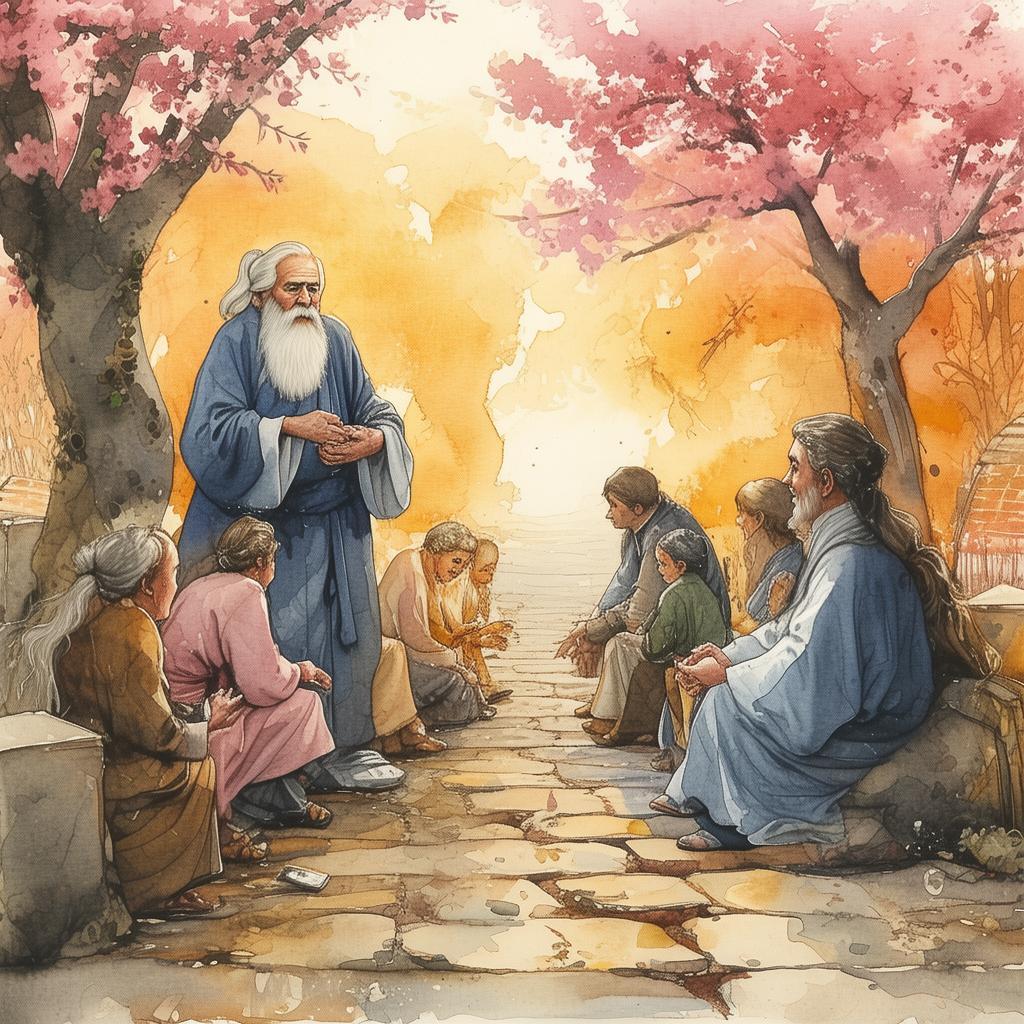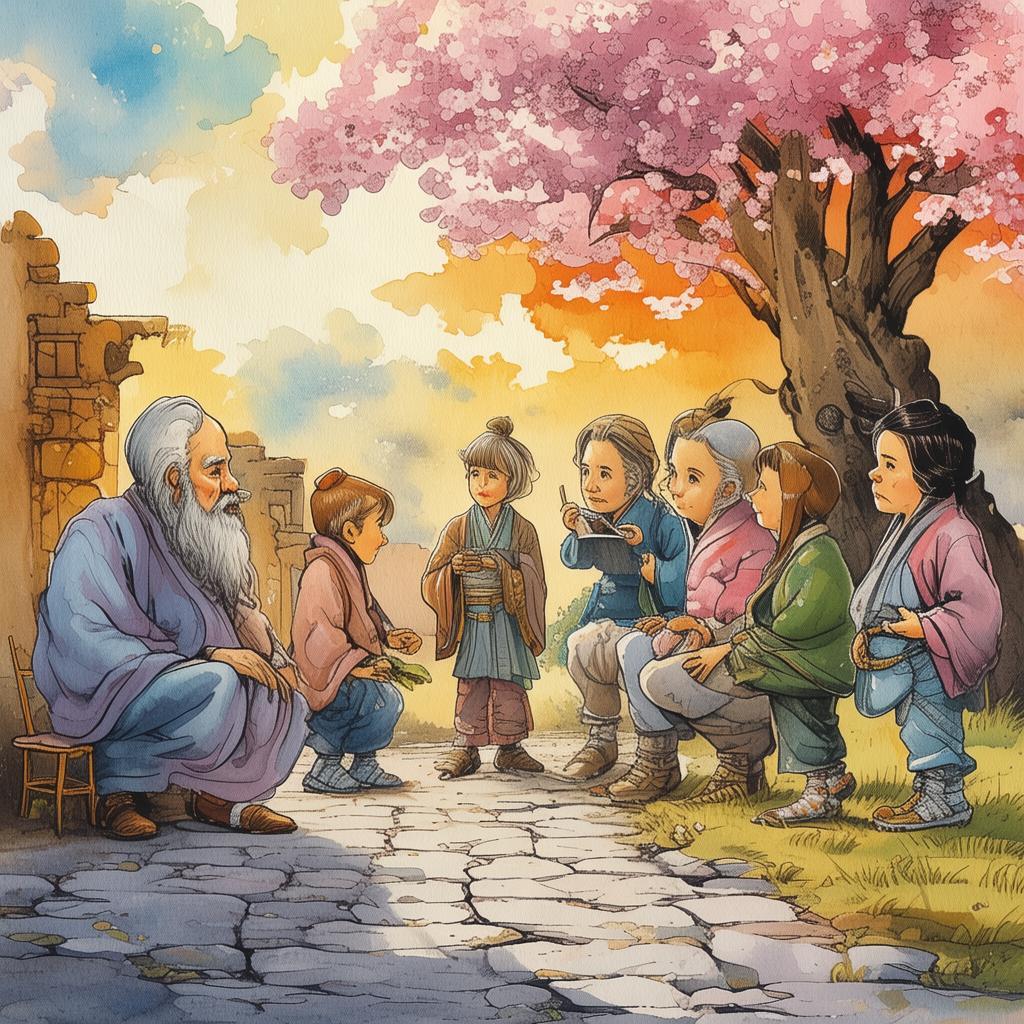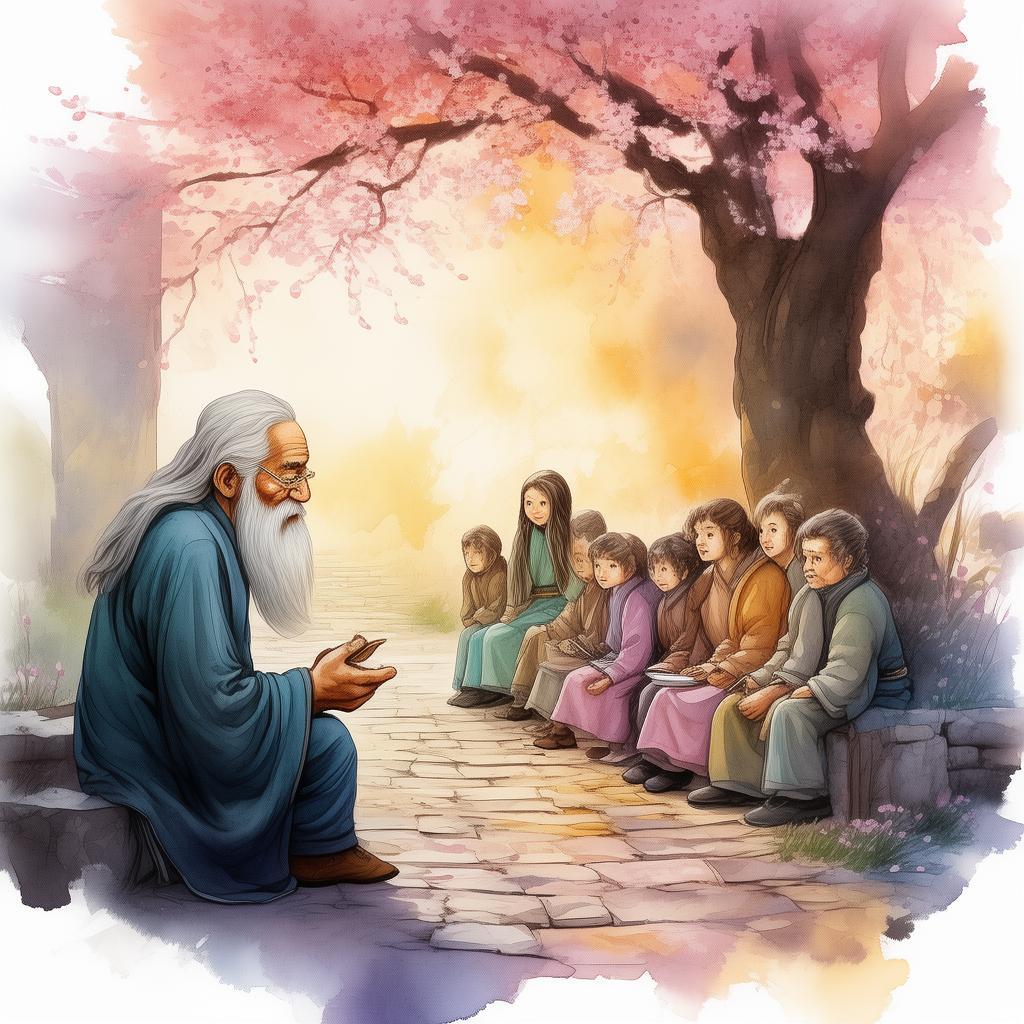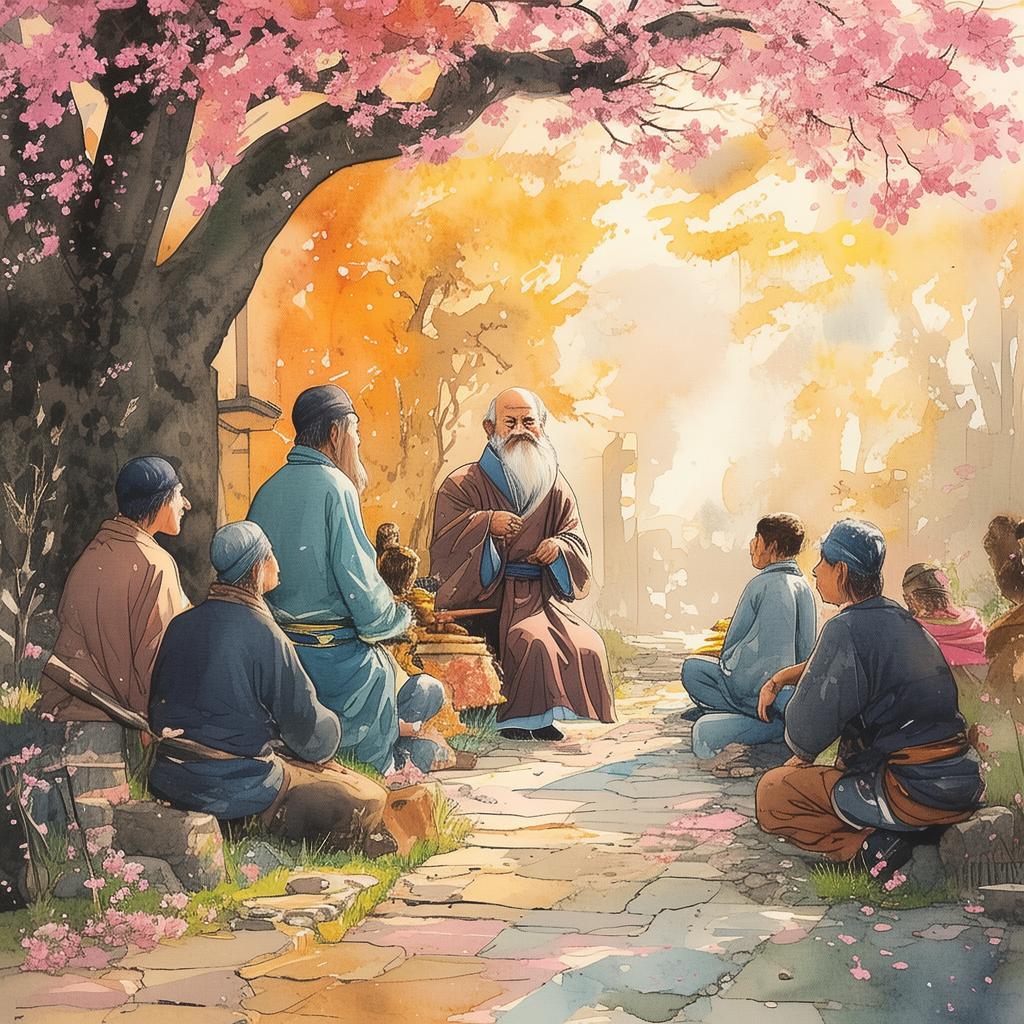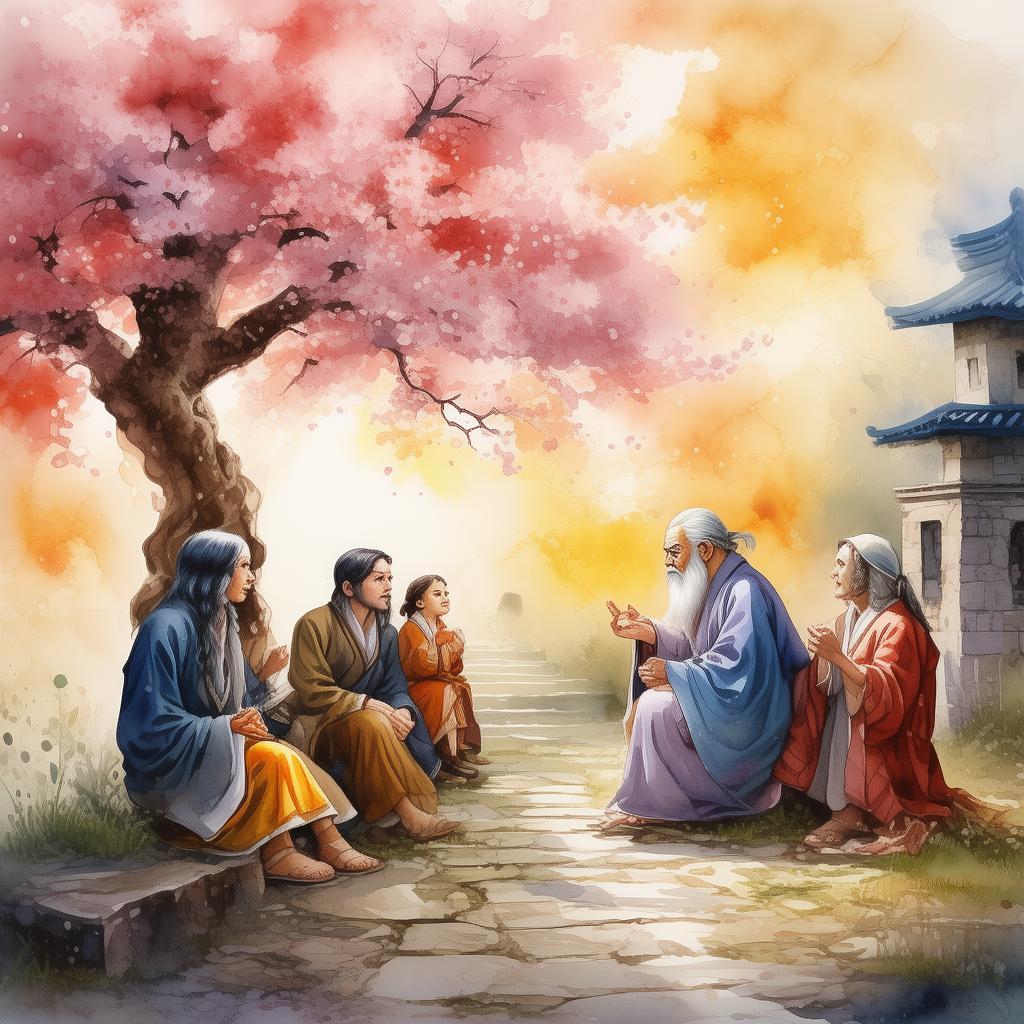Heaven-Sent Vengeance
In the remote mountainous village of Lushan, nestled among towering peaks and thickly wooded valleys, lived a child named Ming. Ming was not just any child; he possessed a gift that had been whispered about for generations—the ability to communicate with the stars. His mother often spoke of the legend of the Wandering Star, a celestial entity said to bestow extraordinary talents upon those chosen by fate.
One evening, as Ming gazed up at the inky canvas of the night sky, he noticed something peculiar—a faint, shimmering trail of light cutting through the constellations. He strained his eyes, and to his astonishment, a single, perfect character appeared on his forearm: “Jing” – meaning “extraordinary talent” in ancient Chinese. Ming was convinced that this was not an ordinary star; it was the Wandering Star itself, granting him its blessing.
As Ming grew, his extraordinary talent began to manifest in unexpected ways. He could see hidden messages in the night sky, understand the emotions of animals, and even predict natural disasters with uncanny accuracy. The villagers spoke of him in hushed tones, comparing him to the great seers of the past.
Years passed, and Ming's fame spread far and wide. The ruler of a distant empire, King Yu, heard tales of Ming's talent and sent his most trusted messenger to bring him to court. The messenger arrived at Ming's home, a figure cloaked in regal robes, and delivered the king's request.
Ming knew the weight of the journey ahead. He was torn between his loyalty to his family and the king's demand for his service. But he couldn't ignore the call of the stars. The night before he left, Ming received a mysterious vision—a celestial figure, cloaked in the light of the Wandering Star, appeared to him in a dream.
"The stars have chosen you, Ming," the figure spoke, its voice like the whispering of wind through the trees. "Your path is one of justice and vengeance. The heavens have tasked you with a mission that will bring balance to the world."
With these words, the figure vanished, leaving Ming with a deep sense of purpose and a heavy heart. He knew that this journey would not only test his extraordinary talent but also his morality.
In the court of King Yu, Ming encountered a world of intrigue and corruption. The king, who seemed benevolent at first, revealed his true nature once Ming had proven his worth. He tasked Ming with a series of tasks that were nothing less than cruel and unjust.
The first task was to identify a group of traitors who had betrayed the empire. Ming's ability to predict events allowed him to locate the traitors with ease, but his heart ached as he watched the innocent suffer under false accusations.
The next task was to devise a way to cure the king's illness. Ming knew the true cause of the king's ailment—a poison he had been administering to the populace. But he hesitated. The king was the ruler, and by helping him, Ming would be complicit in the empire's wrongdoings.
As Ming's journey continued, he grappled with his own moral quandary. He loved the power his talent gave him, yet he detested the harm he was forced to cause. The more he served the king, the more he felt the pull of the Wandering Star's message – one of justice and vengeance.
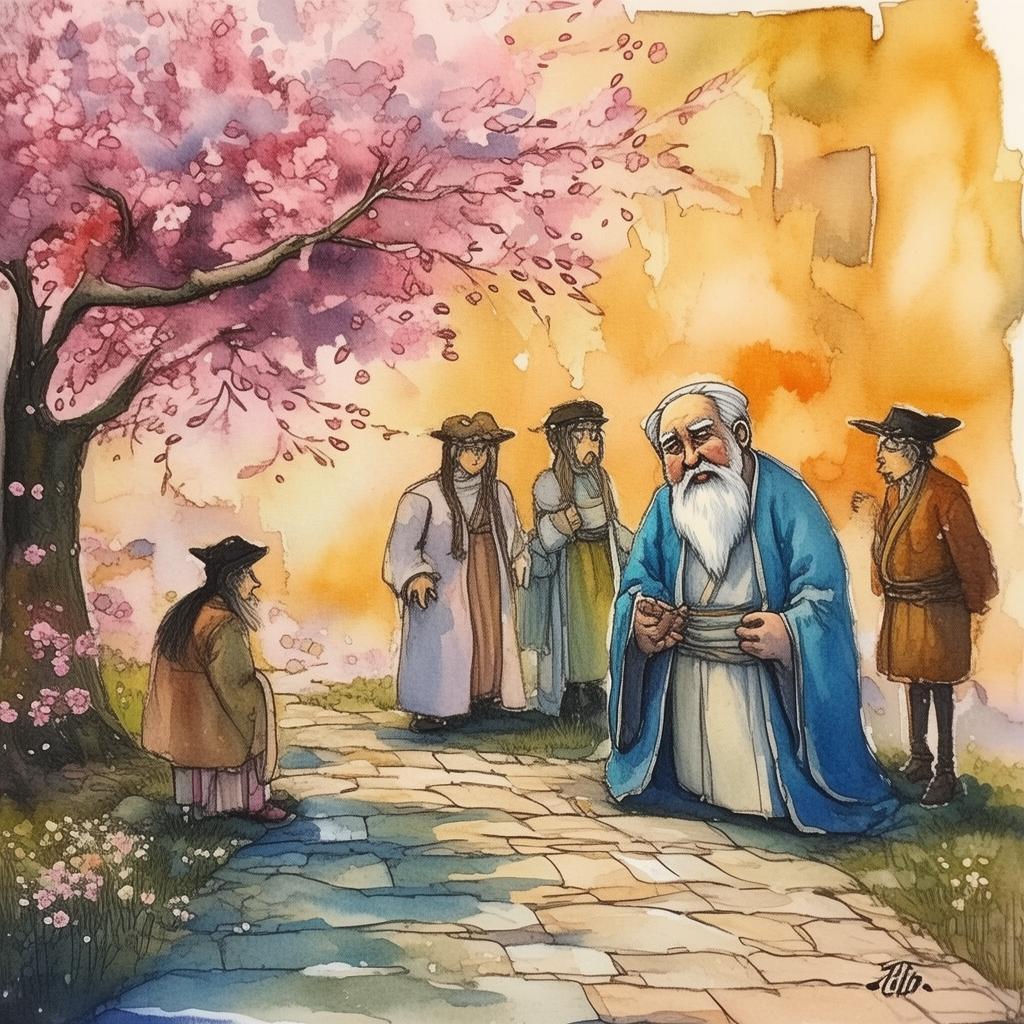
One night, as the full moon hung in the sky, Ming stood at the edge of a cliff, gazing out at the sea of stars. He whispered his dilemma to the night, feeling the weight of his choices pressing down upon him.
"Am I truly the one destined for vengeance, or am I just a pawn in the stars' game?" he asked, his voice barely above a whisper.
The stars seemed to respond, for a moment, their light danced in harmony. And then, in the distance, a figure appeared, cloaked in the light of the Wandering Star, just as he had seen in his dream.
"The stars do not play games, Ming," the figure said. "They merely guide those with the heart to see the truth. Your true mission is to use your gift for the greater good. You must find the balance between the celestial and the earthly."
Ming realized that his journey was not one of mere obedience but one of self-discovery. He decided to defy the king and reveal his crimes to the people. The news spread quickly, and the people rose in rebellion against their oppressive ruler.
The king's downfall was swift, and with it, a new era of justice and prosperity began in the empire. Ming, now recognized as a hero, was no longer a pawn in the stars' game. Instead, he had become a guide, leading others to see the balance between the celestial and the earthly.
Heaven-Sent Vengeance had come not in the form of celestial wrath, but in the humble hands of a child who understood that true power lies not in the ability to control others, but in the strength to control oneself. Ming, with his extraordinary talent, had brought peace to a land that had longed for justice.
✨ Original Statement ✨
All articles published on this website (including but not limited to text, images, videos, and other content) are original or authorized for reposting and are protected by relevant laws. Without the explicit written permission of this website, no individual or organization may copy, modify, repost, or use the content for commercial purposes.
If you need to quote or cooperate, please contact this site for authorization. We reserve the right to pursue legal responsibility for any unauthorized use.
Hereby declared.
